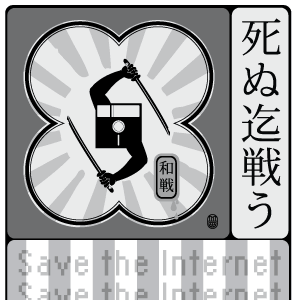
What do you get when you cross the Christian Coalition and pro-gun advocates with MoveOn.org and the Feminist Majority? If you guessed a brawl of epic proportions, you’d be wrong. These groups, and others from across the political spectrum, are actually working together towards a common goal: saving the Internet as we know it.
The enemies these strange bedfellows have allied themselves against are the telecommunications mega-corporations. Companies like AT&T, Verizon and other Internet service providers (ISP) are demanding the ability to have more control over the information flowing from a content provider — such as Amazon or Google — to personal computers screens across America. In essence, these companies want to scrap what has become known as “net neutrality,” which some refer to as the “first amendment of the Internet.”
RIGGED PLAYING FIELD
The idea of net neutrality holds that once data enters the Internet, it should be treated equally regardless of content. This idea stems from telecommunications policies dating back to the 1930s. “Common Carrier” laws required telephone companies to treat all calls equally, preventing scenarios where a particular company could refuse to carry calls placed by a rival’s customer. This basic principal of neutrality was included in the 1996 Telecommunications Act, which ensured the Internet would remain a non-discriminatory system — but this was back in the era of the dial-up modem.
A 2005 U.S. Supreme Court decision changed everything.
The ruling determined that cable companies offered an information service, not a telephone service. The Federal Communications Commission (FCC) followed suit by declaring cable and high-speed DSL access — 98 percent of the broadband market — exempt from the 1996 Teleco Act. Into this regulatory vacuum, jumped the high-priced corporate lobbyists with catchy lingo of deregulation and free-markets. As a result, a far-reaching rewrite of telecommunications guidelines currently weaving through the Senate may ditch network neutrality for good.
The legislation, which the House passed in June after voting down an amendment safe-guarding net neutrality, will create a two-tiered Internet; a rigged playing field where ISPs can designate a “fast-lane” for their own web-content — or those willing to pay top dollar — while everyone else is left in the dust.
This doesn’t bode well for Bob Russell, long-time neutrality advocate and co-founder of the first commercial ISP in Grand Traverse. Today, Russell operates a server that hosts a variety of websites for small-budget organizations, including his nonprofit Neahtawanta Center and Ventingmedia.com — a site featuring streaming videos of local activism.
“This will allow ISPs to discriminate against a packet of data once it gets into the network,” explains Russell. “If a certain packet is considered special because someone paid more, it will go first while everything else falls behind. It will greatly disadvantage small content providers.”
CONTROLLING CONTENT
According to Russell, the recent attempts to alter the net’s basic framework stem from innovations in streaming video broadcasts. As streaming video approaches the quality of television, telecom companies want to reserve high-bandwidth for their own video services in order to compete with cable. However, nothing would stop them from degrading the quality of a competitor’s video service or other web content in conflict with their own interests — especially those unwilling to pay for preferential treatment.
Ed Whitacre, now the CEO of AT&T, already hinted as much in a statement to Business Week last November: “They don’t have any fiber out there. They don’t have any wires. They don’t have anything. For a Google or a Yahoo or a Vonage or anybody to expect to use these pipes for free is nuts!”
Pages: 1 2





No Comments so far ↓
There are no comments yet...Kick things off by filling out the form below.